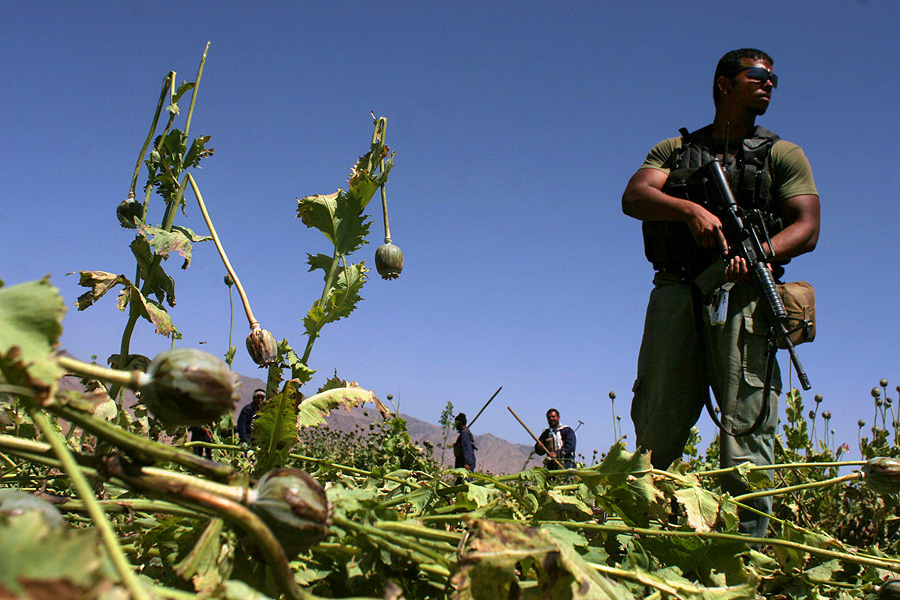Much has been written about counterinsurgency (COIN) strategies and tactics being used in Afghanistan and Iraq – or rather not. Back in my army days in Kandahar in 2007-2008, I remember commanders endlessy bragging about how “we totally nail that COIN thing”, keeping on gargling out quotes from the likes of COIN scholar David Galula, a French army officer who fought in the Algeria Independence War and is considered the leading COIN theoretician, cited as an inspiration to David Petraeus’ “Surge” strategy in Iraq which helped making that war a little less of a fiasco than it eventually became.
Except we weren’t. At all. This is the second of a three-part series of articles that addresses serious issues about the way US, Canadian and other NATO countries conducted what they thought were COIN operations and suggests new approaches that, in current and future conflicts, may improve efficiency and minimize civilian deaths so that wars can no longer be, in the words of my former PSYOPS platoon commander, “about buying time”.
Part 2 : Politics
In Ancient Times, the Roman Empire was built upon a succession of military conquests followed by the spread of their culture and technology – what they considered “civilization”. Famed political philosopher Montesquieu, whose theories inspired, among many things, the concept of separation of powers in several Western States including the US, once wrote in a work called Considerations on the Causes of the Greatness of the Romans and their Decline that “it should be noted that the main reason for the Romans becoming masters of the world was that, having fought successively against all peoples, they always gave up their own practices as soon as they found better ones”.
In other words, they knew that they had to adapt to change if they were going to maintain and expand their empire.
Nowadays, the Western World in general and the United States in particular share many similarities with the Roman Empire, namely a global zone of political influence within which Western technology has spread…And regional wars fought against enemies who wish to bring it down or, at least, drive Western influence out of their respective regions. Such conflicts bring economic instability, political turmoil and are a mortal danger to civilian populations. Anti-colonialists would argue that the West should just pack up, shut down the “empire” and go home. But one can wonder what would have happened to Mali in 2013 if former colonial power France didn’t send its special forces and much-feared Foreign Legion to drive out the jihadist militias advancing towards the capital Bamako unopposed, after several military defeats and a coup weakened the Malian army to the point where it could no longer fight.
But I digress – countless articles can be written about Western foreign policies and its consequences, and I will most likely peel back to this territory in upcoming pieces in this column.
Let’s get back to a more familiar battlefield – Afghanistan. Sound tactics and a coherent COIN strategy could have improved NATO’s chance of winning the war, and I already discussed some aspects in my two previous articles. But no military strategy can be crafted outside of a country’s or an alliance’s political will – after all, militaries are still subservient to politics. And if that political will in no way connects to the reality of the battlefield, then even the most clairvoyant general can never hope to achieve victory.
The elephant in the room during the latest war in Afghanistan was how to deal with drug production and traffic which had become the main funding source for the Taliban. So minimizing drug production and traffic, therefore cutting off the money pipeline which provided money for guns, ammunition, making IEDs and recruiting fighters became an obvious priority.
So far, so good. Except for one thing – NATO chose to emulate policies inspired by another losing war – the US War on Drugs. Whenever a poppy field was discovered, it would be destroyed and the farmer growing it – often under duress from the Taliban or out of despair because it was the only crop that gave him a living wage – would receive no compensation except for a warning that he’s lucky he won’t rot in an Afghan jail. Now, whoever possesses basic knowledge about Afghan culture is aware that Afghanistan is an honor-based society and that lost honor shall be regained through revenge. And so many farmers would take up arms to regain lost honor, sometimes just long enough to do so, then going back to his business, no more grudge held against Western troops. Or sometimes they’d join the Taliban to earn a living wage in a mercenary state of mind – “sorry, it’s not personal, only business”.
Now imagine a different policy where the farmer would not only be compensated for the destroyed field at a higher rate than what the Taliban paid, but then would receive a subsidy to grow another crop – wheat, pomegrenate, etc. with a reassurance that troops will protect him against the Taliban when they come back. In short, empowering the local population economically and politically.
Already have an account? Sign In
Two ways to continue to read this article.
Subscribe
$1.99
every 4 weeks
- Unlimited access to all articles
- Support independent journalism
- Ad-free reading experience
Subscribe Now
Recurring Monthly. Cancel Anytime.










COMMENTS